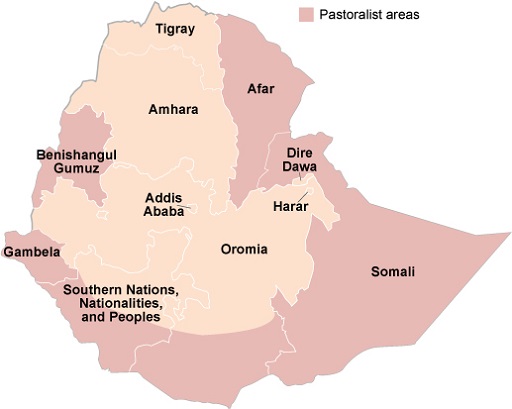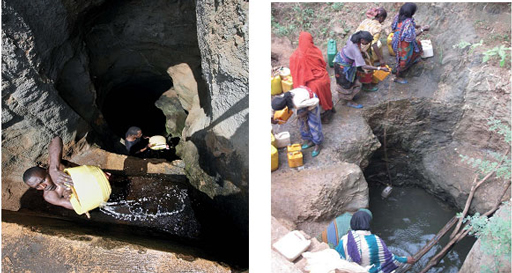6.3 Pastoral WASH
Pastoralism is a way of life in which people who keep livestock such as cattle, sheep, goats and camels move from place to place looking for sufficient water and food for their animals. People whose livelihood is based on these activities are known as pastoralists.
Pastoral areas in Ethiopia cover 61% of the land mass of the country (PFE, n.d.) and support 12–15% of the country’s human population and a large number of livestock. These areas, commonly called ‘rangelands’, are located in the arid and semi-arid lowland parts of the country (Figure 6.5).

In general, access to safe water supply and sanitation facilities in pastoralist areas is lower than that of non-pastoralist areas. In most cases, water sources, such as traditional water wells do not produce sufficient water to satisfy human and livestock requirements. As shown in Figure 6.6, the water level is low and the craftsmanship of the well is poor, making drawing water very difficult and laborious.

Why do you think access to water and sanitation in pastoralist areas is so low?
The people move around with their animals so they do not have a fixed location where they live. Safe water supply and sanitation services require fixed constructions like pumps and latrines, therefore it is difficult to provide these for people on the move.
6.2.2 Rural sanitation and hygiene promotion
